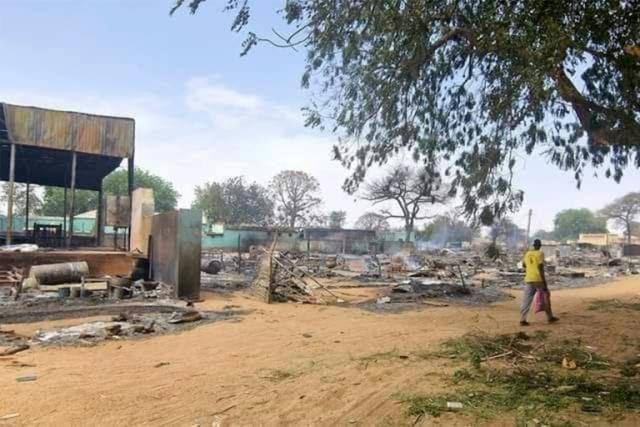US finds war crimes and ethnic cleansing in Sudan war

The United States said Wednesday that Sudan’s rival forces have both committed war crimes in their brutal conflict and alleged a new ethnic cleansing campaign in scarred Darfur.
After months of rising concern and frustration at the failure of talks, Secretary of State Antony Blinken presented findings following an evaluation by the State Department.
Blinken said that both the Sudanese army and the Rapid Support Forces (RSF) — whose longstanding tensions erupted into wide-scale violence on April 15 — have committed war crimes.
The RSF has also carried out ethnic cleansing and crimes against humanity, he said, pointing to accounts of mass killings by the largely Arab force and its allied militias against the ethnically African Masalit people in Darfur.
Blinken said the campaign had “haunting echoes of the genocide that began almost 20 years ago in Darfur.”
“Masalit civilians have been hunted down and left for dead in the streets, their homes set on fire and told that there is no place in Sudan for them,” Blinken said, pointing as well to sexual violence.
Both the Sudanese army and the RSF “have unleashed horrific violence, death and destruction across Sudan,” Blinken said in a statement.
The two sides “must stop this conflict now, comply with their obligations under international humanitarian and human rights law, and hold accountable those responsible for atrocities,” he added.
Army chief Abdel Fattah al-Burhan and RSF commander Mohamed Hamdan Daglo, Burhan’s former deputy, teamed up in October 2021 to derail a fragile transition to democracy in Sudan, where mass protests helped end decades of autocratic rule.
The violence erupted in April as the two failed to agree on the integration of the RSF into the army in line with a roadmap to civilian rule.
More than 10,000 people have been killed, according to a conservative estimate from the Armed Conflict Location and Event Data Project, a monitor, with the United Nations saying 6.3 million more have been forced to flee their homes.
- Echoes of scorched-earth Darfur war –
Darfur — roughly the size of France and home to around a quarter of Sudan’s 48 million people — is deeply scarred by a scorched-earth campaign launched two decades ago by the RSF’s predecessor, the Janjaweed militia.
Then-dictator Omar al-Bashir used the Janjaweed to suppress non-Arab minorities — a bloody campaign that eventually saw him charged with genocide, war crimes and crimes against humanity by the International Criminal Court.
Human Rights Watch in a recent report said that the RSF killed hundreds of Masalit civilians in early November in what had “the hallmarks of an organized campaign of atrocities.”
Quoting survivors, they said the RSF and allied fighters “went on a rampage” through a camp of displaced people targeting the Masalit people after seizing a base from the army.
The UN human rights office also called for an investigation into what it described as “six days of terror” against Masalit civilians.
Two decades ago, the Darfur bloodshed drew international outrage, including a US finding of genocide, but the latest violence comes amid a flurry of crises, including the Gaza war and fighting in Sudan’s neighbor Ethiopia where the United States has also alleged war crimes.
Ben Cardin, chairman of the Senate Foreign Relations Committee, called on the State Department to name a high-level envoy on the conflict who would “work with the Sudanese in support of their aspirations to establish a democratic, representative government.”
The United States and Saudi Arabia have led negotiations aimed at ending the fighting, with the State Department initially hesitant to take actions that could alienate one side and break down communication.
But the two sides made no tangible progress when they met again a little over a month ago in the Saudi port city of Jeddah.
“The talks broke down because both parties — (the army) and RSF — repeatedly refused to adhere to the commitments that they made at those talks,” State Department spokesman Matthew Miller said.
by Shaun TANDON
©️ Agence France-Presse












